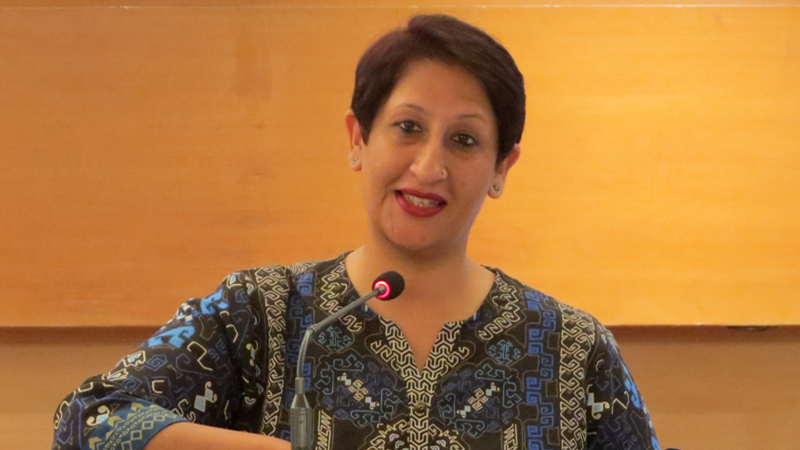Pakistan’s nuclear program in the presence of New Delhi-Islamabad rivalry cannot simply be studied without understanding the role of United States in South Asia. The American involvement in the subcontinent initiated from the British colonial retreat when an international wave of decolonization created Pakistan parallel to declaring India as an independent state. Further political developments during the intense days of the Cold War augmented Washington’s presence in South Asian region. As an international promoter of non-proliferation norms and as an active advocate of international non-proliferation regime, the United States was compelled to focus on South Asia when New Delhi conducted its Peaceful Nuclear Explosion (PNE) in 1974. The PNE not only triggered a nuclear race in South Asia, but it also let Washington enhance its role in the regional politics of the subcontinent. A number of authors from diverse backgrounds have tried to express their thoughts about the nuclear history of India and Pakistan by maintaining contesting positions. The nuclear history of South Asia, in this way, became an important topic for various circles of international strategic communities.

A recent account of such analysis comes from Rabia Akhtar who is Assistant Professor and Head of the Department in the School of Integrated Social Sciences at the University of Lahore. She is also the founding director of the Centre for Security, Strategy and Policy Research (CSSPR). She is running Pakistan’s first strategic and foreign affairs magazine, Pakistan Politico as its Managing Editor and is a Fulbright alumna who completed her doctoral degree from Kansas State University, USA. The book under review is based on her PhD research which revolves around Pakistan’s nuclear efforts while being in close relation with Washington. It is a historical survey divided into six chapters and a brief introduction. The five chapters, apart from the sixth chapter which contains the concluding analysis, cover Pak-US relations during the term of five American Presidents. From Ford to Clinton, the book attempts to highlight the how and why the US accommodated Pakistan in carrying out its nuclear program. In other words, it is a story of Islamabad’s grievances over the American way of imposing sanctions on Pakistan while examining the nuclear politics rising from South Asia. Three basic concerns of Islamabad on Washington’s non-proliferation policy towards India-Pakistan initiate debate in the starting pages of the book. The subsequent parts of the book discuss five presidential regimes involving, Ford, Carter, Reagan, Bush, and Clinton, and their relevance to South Asian nuclear race generally, and Pakistan’s nuclear journey particularly.
The writer tries to answer three main questions and provides appropriate answers to those questions, these being the main debate in six chapters. It emphasises the crucial times of Washington-Islamabad bilateral interaction over the nuclear issue. American Foreign Assistant Act of 1961 is the gravitational point of this study because the sanction driven amendments in this Act have been studied by Rabia Akhtar in his analysis. The amendments consisting of Symington, Glenn, Pressler, Brown and Solarz, resulted in various complexities in Pak-US relations and eventually resulted in an estranged diplomatic interaction between two states.
This book is an exceptional account of examining the nuclearized subcontinent using the primary sources, mainly consisting of numerous declassified documents which are generally accessed from American presidential libraries. Moreover, it accessed the documents mostly based on official correspondence between top state officials from Pakistan and United States. Instead of including different viewpoints of various Pakistani scholars working on strategic affairs of South Asia, the writer remains selective in quoting the position of the Islamabad based strategic community. An interesting part of the discussion comes in Chapter three when the Reagan administration preferred to ease sanctions by increasing its relations with General Zia. In order to convert Afghanistan into Vietnam for the Soviet Union at the end of decades-long rivalry of Cold War, the United States decided not to place Pakistan under severe sanctions.
With reference to American global non-proliferation campaign, the study of Rabia Akhtar primarily structured on archival data is a praiseworthy work on Pakistan-United States relations. It can be considered a remarkable effort which attempts to portray a different picture of a subject studied by various authors. The overall analysis in the book is an endeavour to recover the widening gaps between Washington and Islamabad. In this way, it would be more appropriate to call this work an “Awakening Eye” because Pakistan and United States need each other and any wave of mistrust between them could be counter-productive. The Blind Eye argument is apposite to comprehend merely a different dimension of Pak-US relations. The analytical portion of this study is a Blind Eye from American dichotic non-proliferation efforts towards India and Pakistan. An Indian-inclined South Asian policy is the fundamental concern of Pakistan which the author slightly touches upon in the main arguments.
Rabia Akhtar is a widely published author who has expressed her opinion at various national and international academic forums. She is a prolific writer and contributes on U.S foreign policy, South Asian nuclear politics, South Asian strategic stability, and politics of nuclear non-proliferation. She also reveals various dimensions of nuclear deterrence and strategy, in addition to working mainly on the theoretical dynamics of International Relations discipline. Rabia Akhtar’s book offers a different account of Pak-US relations of estranged interaction which is apposite to understand the American way of managing its diplomatic connections with core allies.





